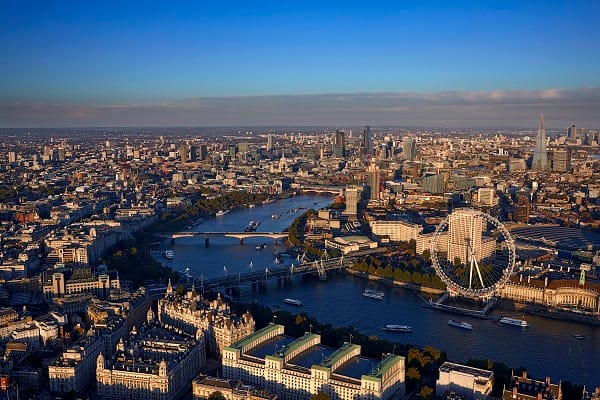Opening up his new diary column our editor-at-large Charles Orton Jones gets red-faced about bad economics, bungling taxmen and the price of gold.
I gnash my teeth at this foolishness from the BBC’s business correspondent Robert Peston. He says of London’s bankers:
“I genuinely don’t understand people who want more money than they can spend. I have a psychological problem with that. I can understand why people would want money to keep warm…or do something constructive with it. What I don’t understand is people who just accumulate fortunes they are never going to get through in their lifetimes. Why don’t they give it to charity? What the hell is that all about?”
Poor Peston has fallen foul of the Scrooge McDuck Fallacy. Remember Donald Duck’s uncle Scrooge McDuck? He kept his gold coins in a vault, wherein he would roll around on his coins, sometimes breaking into a breaststroke. This was rather selfish of Scrooge McDuck, as keeping his coins locked away meant no one else could use them.
Fortunately very few rich people keep their cash in a vault. They tend to put their money in the bank, which lends the money to borrowers. Via fractional reserve banking the money is lent repeatedly, helping more people with each iteration.
So when Bernie Ecclestone has a billion or two in his savings account he is not selfishly hoarding the money – he is lowering the cost of bank loans for thousands of ordinary people. He might also invest his cash thus helping startups, or he if buys shares he is lowering the cost of capital for larger firms.
The money of rich people is thus always “doing something constructive”. Peston ought to know this.
Charles Orton-Jones: Why Hester deserves every penny of his bonus
Lords committee hits out at financial transactions tax
Charles Orton-Jones: Why the USSR lost the Cold War
Redknapp-Gate
The taxman’s pursuit of Harry Redknapp cost a Scott Parker and a half. Or one Kyle Walker. We are talking £8m to chase an alleged debt of £100,000. The barrister for the defence, John Kelsey-Fry QC says the case should never have come to court. “If you look at the logic of the case none of it made sense. It’s one of those things where if you sit down and think about it, you know there is something not right there.”
But the real question is who at HMRC is going to carry the can for this balls-up. In the private sector you’d be facing the sack for blowing £8m. There is also the small matter of harassing an innocent member of the public. Will there be any punishment for anyone at HMRC for this waste and bullying? Do civil servants operate in a consequence free world? The tabloids have moved on. There will be no reprimands for the blundering taxmen.
Guardian, the end is nigh
The Guardian will stop printing and go online only. I made this forecast last month and I am more confident than ever. The editor Alan Rusbridger has just announced he is to take a 10 per cent pay cut, from £438,000 to £395,000, and have his pension contributions halved. A bad omen.
Last year The Guardian and Observer lost £41.6m – more if you include restructuring costs. The forecast for this year is no better.
It’s time for Rusbridger to man up and axe the Guardian print edition. Pour the money saved into the online operation. Why wait and bleed more cash?
Pinteresting traffic figures
My colleague Gabriella Griffith alerted me to Pinterest.com. Her piece is here. Pinterest now drives more traffic than Google+, YouTube and LinkedIn combined. Observe Pinterest’s growth compared to, say, the worlds most popular online newspaper, the Daily Mail. Griffith reports a valuation of $200m.
I reckon you could add a zero onto that.
Alexa.com
The rise of Exmouth Market
I’ll wager no street in London has improved faster than Exmouth Market in Clerkenwell. Eight years ago Exmouth Market was reassuringly downmarket. The Exmouth Arms was home to Post Officers workers clocking off from the Mount Pleasant sorting office. There was a kebab shop, a key cutter and cobbler, and the restaurants had formica tables. Now it is a gastronome’s dream.
Beside the legendary Moro is its tapas spin-off Morito. There’s the American bar Dollar, Cottons Caribbean restaurant, gastro-pub Medcalf and two new japanese restaurants, Necco and Bincho. A third, Ginnan, is over the Farringdon road. The Exmouth Arms now serves 70 varieties real ale. Nogne IPA is ten quid a bottle. Dowdy Al’s Café is now hipster hang-out Caravan.
At lunchtime there are a dozen stalls selling food from around the world – Ghanaian spinach & agushi, Piedmontese sausages, French crêpes and galette, Thai noodles, Bangladeshi curries, and Mexican burritos. Yummy mummies go to yoga and tango lessons at the Catholic church. A one bed flat by Exmouth Market is on sale for £600,000, up more than double in a decade.
Tell me, can anywhere in London match this speed of gentrification? And where’s next?
Gold price
Talking of gold – it is now $1,721 an ounce. Gordon Brown sold the nation’s gold for $273 an ounce. He sold 395 tonnes of gold at this price level between 1999 and 2002.
I mentioned the sale this week to one of London’s best known gold entrepreneurs, who told me: “It was idiocy. In fact, at the time it looked like double idiocy. It wasn’t just the price. It was the way he sold the gold.” By giving advance notice of the 17 auctions Brown ensured the price would be rock bottom. The cost to the taxpayer is around £9bn.
Gordon could have funded the entire Olympic Games and Stratford regeneration project simply by bunking off work and going to the cinema.





Leave a Comment